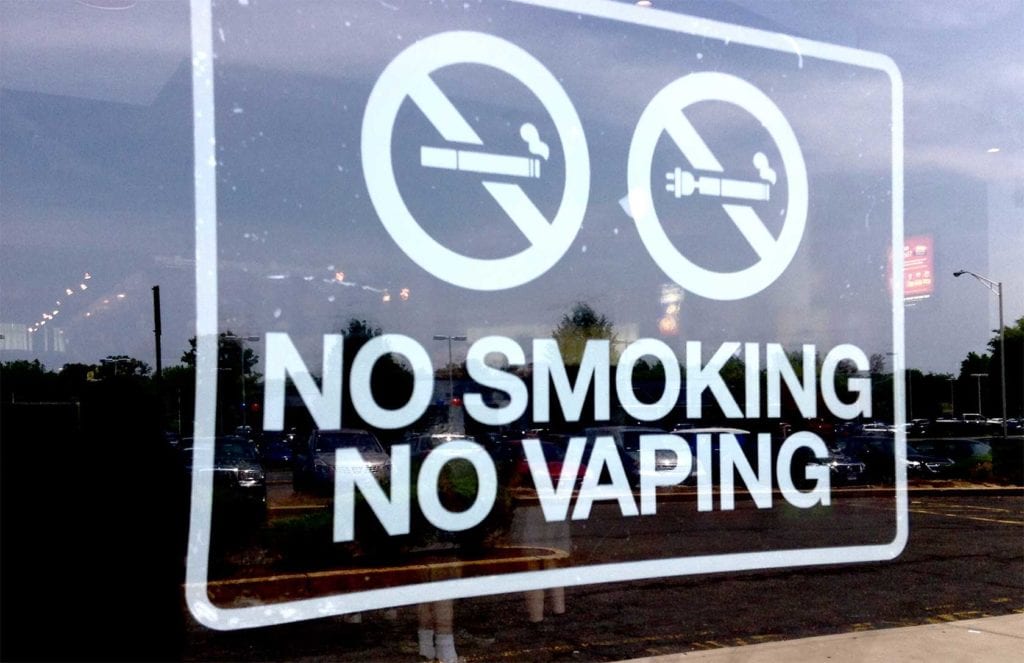
Massachusetts is used to being the first. It was the first state to abolish slavery in 1783 and the first to legalize same sex marriage in 2003. It led the nation in the individual mandate for health insurance long before the Affordable Care Act was established.
On June 1st it became the first state to ban the retail sale of menthol-flavored tobacco products. This is a significant initiative.
An earlier national law —The Family Smoking Prevention and Tobacco Control Act of 2009 — gave the U.S. Food and Drug Administration full authority to regulate the manufacturing, marketing and sale of tobacco products. It also banned all flavored cigarettes, including fruit and candy flavors, but stopped short of including menthol flavored tobacco in that ban.
Yet, the marketing and promotion of menthol cigarettes have been targeted heavily toward African Americans, according to the Centers for Disease Control and Prevention, African American adults have the highest percentage of menthol cigarette use. And seven out of ten black youth between the ages of 12 and 17 who smoke have a preference for menthol cigarettes, the CDC further explained.
Some research suggests that menthol cigarettes may be more addictive than non-menthol cigarettes … and more dangerous. It is thought that the harmful chemicals in these cigarettes are more easily absorbed in the body because menthol makes it easier to inhale.
For years, however, tobacco companies offered financial support to many organizations that focus on concerns related to African Americans. The tobacco industry worked to retain “close, continuing relationships” with virtually every major African American leadership group, according to The BMJ, a weekly peer-reviewed medical journal. In addition, some members of the black congress were not supportive of the elimination of the menthol flavor.
The tide may be turning, however. A ban on menthol tobacco is gaining steam in Congress, led by Congressional Black Caucus Chairwoman Karen Bass of California. In addition, two organizations – Action of Smoking and Health and the African American Tobacco Control Leadership Council — have banded together in a lawsuit against the FDA for failure to fulfill its mandate to remove menthol from the marketplace.
An Act Modernizing Tobacco Control went into effect in Massachusetts on June 1st. This is a landmark act of sorts. Massachusetts became the first state to restrict the retail sale of not only menthol but also all flavored tobacco products, including cigarettes, cigars and chew. Menthol does not go away altogether, however, but you can’t buy a pack or carton and walk away. Smoking of all flavored products – Including menthol – is now restricted to smoking bars for onsite consumption, according to the Massachusetts Department of Public Health.
Retail stores licensed to sell tobacco products, such as gas stations and convenience stores, can still sell unflavored tobacco products to those 21 years of age and older as long as the nicotine contents is below a certain level.
The sale of non-flavored nicotine vaping products is restricted to licensed, adult-only retail smoke shops and smoking bars. The sale of all favored vaping products, such as e-cigarettes, on the other hand, took effect last November when the bill was signed. Their sale and consumption are restricted to licensed smoking bars only.
The price goes up as well. A 75 percent excise tax is added to the wholesale price of nicotine vaping products in addition to the state’s 6.25 percent sales tax.
These restrictions were put in place largely to prevent access to youth. Vaping is associated with 68 deaths in this country and almost 3,000 lung injuries, commonly referred to as EVALI, or E-Cigarette or Vaping Use Associated Lung Injury. As of February of this year, seven deaths in the Commonwealth are attributed to e-cigarettes, according to the CDC.
Tobacco is the leading cause of death world-wide. Smoking of any kind significantly increases the risk of heart disease and several types of cancers, and blacks are hit hard by both. Add Covid-19 for an even more dangerous mixture. The virus primarily attacks the lungs, and smokers and those with chronic lung disease are potentially deadly targets.
Although it is preferable never to start smoking, the good news is that it is never too late to stop. Smoking cessation assistance is available at:
- Smokers’ Helpline: 1-800- QUIT-NOW (1-800-784-8669)
- National Cancer Institute’s Smoking Quitline: 1-877-448-7848
- Smokefree.gov







